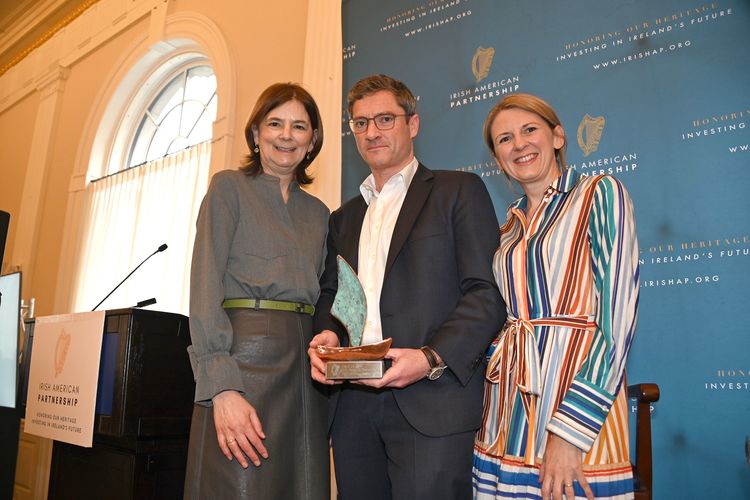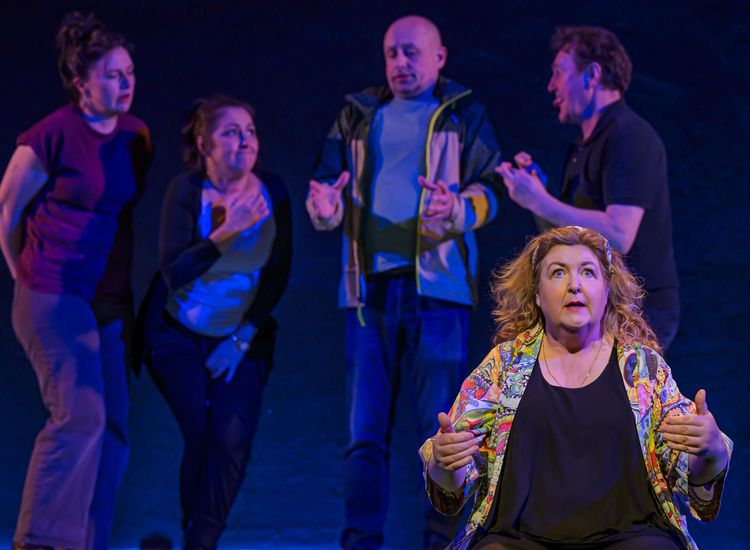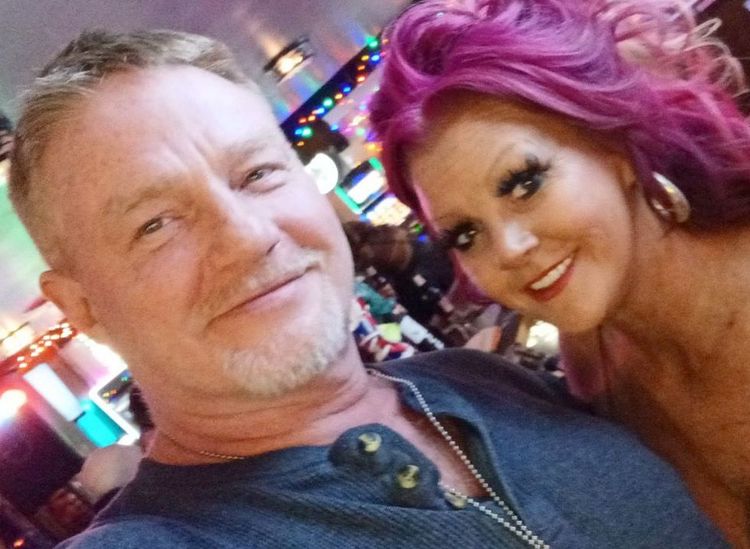[caption id="attachment_71955" align="aligncenter" width="600" caption="Martin McGuinness delivering his address in Killarney."]
This is an edited text of the speech delivered by Martin McGuinness at the recent Sinn Féin Ard Fheis in Killarney. Partition created two conservative states on our island. The rights and entitlements of ordinary citizens were secondary to the needs of the political class in both states. That is why every Irish government, since partition, including the present one, is happy to pay lip service to a united Ireland and more importantly to the rights of citizens.
That is why it was acceptable to abandon nationalists in the North to whims of a unionist regime and the reality of second class citizenship. That was a political reality that I could never accept as normal. Through forty years of struggle and our involvement in peace negotiations we have managed to dismantle one party rule in the North and brought second class citizenship to an end. We have replaced this with equality, partnership and power sharing.
We have erased the physical nature of the border. We have constructed all-Ireland political institutions.
But we have yet to achieve our primary political objective of re-unification and sovereignty. That is the mighty task which we now face. And Irish unity is not simply a republican objective, it is I believe necessary for our people, Catholic, Protestant, Dissenter and others to achieve our full potential.
There is a better way than the status quo. A re-united Ireland and a new republic built in the interests of citizens is the future.
There is massive potential for republicans in the time ahead. We are in an entirely new situation, legislatively and constitutionally There are massive challenges in trying to provide good progressive government in the North within the constraints we operate in and at the same time giving hope for tens of thousands of Irish citizens in the South living under the austerity regime created by the selfishness, greed and incompetence of bankers, developers and politicians.
We have transformed Ireland in the course of the past decades. Our role as the driving force at the heart of the peace process has proven that where there is a desire and a will for change, anything is possible. We have also transformed Irish republicanism (with) all-Ireland republicans in government for the first time in 100 years working peacefully and democratically for Irish freedom.
But our work as republicans is far from done. It is now time to move from the peace building phase of the struggle to the nation building stage of the struggle. That requires the very same confidence, strategic thinking and determination that has marked our approach for many years.
This is not about trying to turn unionists into nationalists, or to try and hook wink people about our intentions. The reality is that much hurt has been caused on all sides during the conflict, and indeed by the very imposition of partition itself. To date, much of the public running in this debate has been undertaken by republicans. It is however a mistake to think that many within the broad unionist community are not thinking their way through the necessity for reconciliation.
And I can report to this Ard Fheis that the process of national reconciliation and reconstruction has commenced. In recent months, senior party members, under the direction of the party Chairperson Declan Kearney, have been involved in initial discussions with a range of civic unionism and Protestant churches. It is my firm view that a foundation is being built slowly and steadily upon which we will as a community jointly move forward.
Indeed, one very significant group of people that have been engaged with us over the past number of weeks have told us, and I quote: "As a group of people from the Protestant and unionist tradition we welcome this initiative which we believe is a genuine invitation to engage in dialogue. It will provide an opportunity to explore and seek to understand the concepts, principles and language of the statements of the national chair of Sinn Féin and others. It will also provide the opportunity for those from our community to try to help Sinn Féin understand our concepts, principles and language.
"Further, we would wish to encourage the representatives of Sinn Féin to continue in their pursuit of this work with a wide range of political and community interests, and to encourage others to engage. We would wish them to know that we are keen to engage further on a range of issues as the initiative develops."
This very positive response represents a further crucial building block on the road of peace and reconciliation.
It is my view, backed I believe by plenty of evidence, including the lack of co-operation with the Saville, Barron and Smithwick inquiries that the British government is not interested in a process which would deliver truth and reconciliation. This is in the main motivated by self- interest. Put simply, it does not suit Britain's own strategic interests to face up to its role in Ireland.
However, we cannot let the divisions fostered through the decades of conflict and the British government stalling on the issue of the past to hold back the potential that now exists to move forward politically and democratically to a new republic.
In that context, we have a responsibility to reach out to unionists and to others to engage with them about the past and indeed even more importantly about the future.
A united Ireland will succeed with the input of all sections of our people. We seek an Ireland in which unionists would feel comfortable not just in being a part of, but being in the leadership of.
I have said many times that it is possible for unionists and republicans to stand together without dilution of our beliefs. The executive, which I have jointly led with Ian Paisley and Peter Robinson for the past five years, is evidence of that.
I said in my Easter speech that in the discussions leading to re-unification we need to be imaginative and generous towards unionists. The ability to be generous to each other should be seen as a strength, not a weakness. Passport rights, symbols and other issues of identity crucial to building a fully inclusive united Ireland, respecting the traditions of all our people, in all their diversity, can be addressed.
And we need to remember at all times that dialogue isn't a one way street. We also need to listen to what unionists say to us, and indeed about us. That is the role of nation builders. That means always stretching ourselves and always taking risks to advance the task of building a new Ireland.
Ireland as a nation can only truly prosper if we are at peace with ourselves as a people. Having the confidence to build a new better relationship with Britain will also be important.
It means overcoming the historic fracture between Catholic, Protestant and Dissenter. In the Ireland of 2012 it means building a pluralist, ethnically and culturally diverse society that embraces all our citizens.
In the year ahead I intend to deepen and expand my role to help lead the process of national reconciliation in Ireland. A process which is already underway. I hope to do this with your continuing support.
National reconciliation is a necessity for future constitutional change. It is work that we as republicans need to energetically embrace.
A peaceful and democratic path to a united Ireland is there. This party is utterly determined to drive forward along that road.










